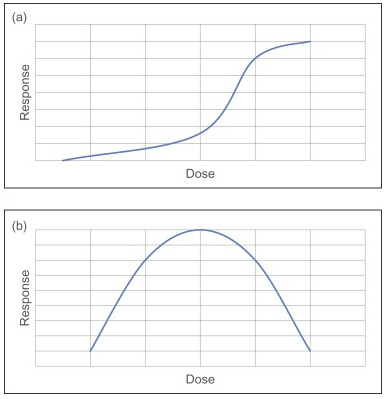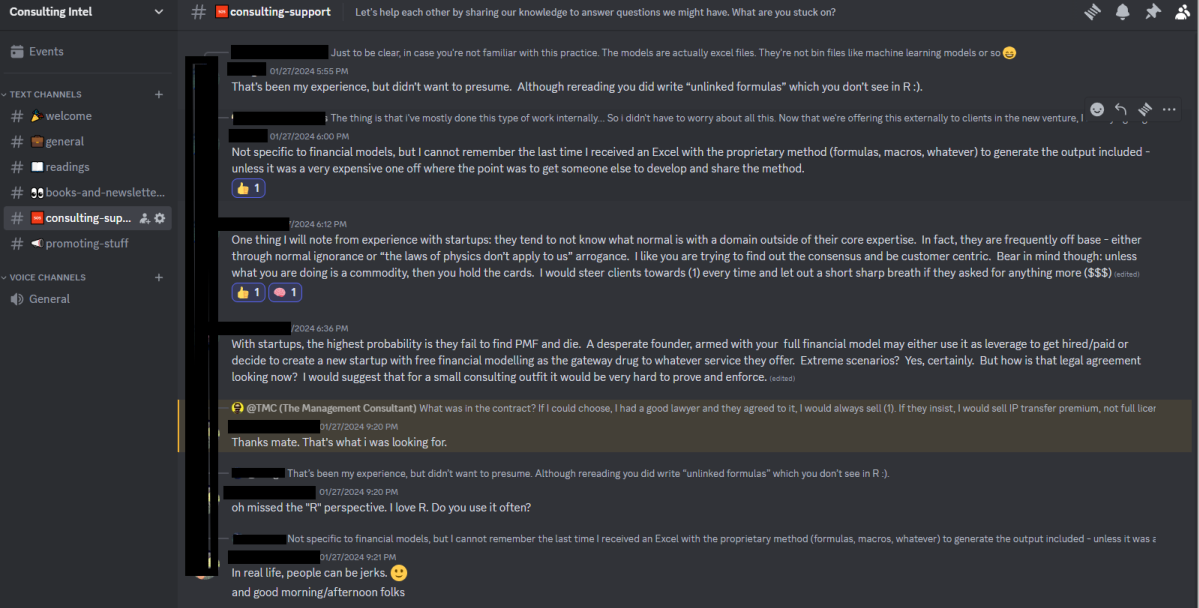Dose-Response and doing good work: how to stay at your best
We need to learn how to balance intensity and rest to be able to achieve sustainable performance
Hello to the 2,621 subscribers who read Consulting Intel!
My father, who passed away last year, was a psychiatrist. Growing up, I was constantly exposed to medical topics and often found myself reading the manuals that were always scattered around the house (yes, he was quite messy). I didn’t become a doctor, but I have always felt a connection to the field.
In pharmacology, there’s this interesting concept called the “dose-response relationship”. In a nutshell, this is the idea that the effect of a drug is directly related to the dose you take.
Too little of it, and nothing happens. Too much, and it can be toxic. The good doctor’s job is finding that sweet spot where you get the most benefit without tipping over into harm.
This principle does not just apply to medicine but - I found out - to almost everything in life, including work. For example, if you take on too little responsibility, you’ll get bored, disengaged, or never really push yourself to grow. If you overload yourself - if you change the dose and frequency of your work too drastically - you burn out, lose passion, and end up resenting the thing you once enjoyed.
Take any job or skill.
At first, you might enjoy it: you are learning, growing, and feeling fulfilled. Maybe you get good at it, but if you keep pushing without enough breaks or reflection, that feeling of satisfaction starts to wear off. The same job that used to energize you now feels like a burden (my daughter found this out very early in life, as I discussed here!)
Let’s take an example from daily life: exercising.
Imagine you are running every day to build stamina. At first, running three times a week feels great because you are seeing results and getting stronger. But then you decide to run every single day and, soon enough, your legs feel sore, your motivation wanes, and what was once an enjoyable hobby turns into a chore. You’ve crossed your optimal dose, and you decide to burn your running shoes forever.
Work operates similarly.
As consultants, we might love problem-solving and helping clients. However, pile on too many projects, back-to-back meetings, endless hours at the desk, half a dozen “internal initiatives”, and even the best job can lose its luster.
It’s all about finding that dose where we are challenged but not overwhelmed, productive but not exhausted.
Lions and work cycles
Naval Ravikant, the philosopher VC, has a great analogy for work:
“Work like a lion, not like a cow.”
Cows graze all day, slowly chewing their way through the fields. Lions, on the other hand, rest for long periods but sprint into action when it’s time to hunt. They work intensely, then rest deeply.
This is a perfect metaphor for how we should approach work!
Instead of constantly grinding away, day in and day out, we should allow ourselves ample time to rest, reflect and absorb knowledge, then, when it’s time, we should dive deep into our work with focus and intensity.
This cycle of rest and action aligns beautifully with the dose-response principle: sprinting at the right moments gives us the high dose of focus we need to create impactful work without hitting the toxic dose of burnout.
Working well is a bit like socializing: too much solitude and you feel isolated, but too many social events and you feel drained.
I will leave it as a fun exercise for the reader to come up with the other hundreds situations where the dose-response relationship influences the outcome: use the comments section to let me know.
Balance is not Equality
Many people talk about balance, but what is balance?
I believe balance does not mean equal parts of work and rest. A lion’s balance is not 50% hunting and 50% relaxing. The lion spends most of its time resting, reserving short bursts of energy for high-impact moments. In the same way, we don’t need to be “on” all the time to be effective.
The value of our work comes from those concentrated bursts of effort, followed by adequate recovery.
In 2023, David Beckham, the now-retired superstar footballer and current owner of Inter Miami, was asked about advice that new mega signing Lionel Messi had offered to youngsters in the Miami team.
The podcasters hosting the interview were your average over-enthusiastic Yanks salivating at the thought of the clickbaity, over-the-top answer that could have come from an influential owner who was marketing his star signing.
In a way, they did get an amazing response because Mr. Beckham coyly says:
You won’t believe it, but all Leo told them was: “Run less”
If you observe Messi during any game, you will notice that he is constantly walking but rarely idle. He is looking around, scanning players and free spaces. And then, before anyone can catch up, he just scores a goal or creates a potential chance primarily because of all the saved-up energy that elevates his already wizard-like skills.
In fact, during a famous El Clasico soccer game from 2017 (a clasico is a match between the best two Spanish teams: Real Madrid and Barcelona), a Spanish newspaper by the name El Periodico kept track of Messi’s movement and analyzed the data thoroughly.
The data crunchers established that the legendary player walked nearly 83.1% out of the total game time, and only sprinted for a little over 1% of it.
Do you really believe that working like a mad person for 18 hours a day will give you the desired results?
Instead of always feeling like you need to grind harder, ask yourself:
What’s my ideal dose?
When was the last time I took a meaningful break?
Do I feel energized or depleted after my work sessions?
Am I working with intention or just going through the motions?
Am I pacing myself like a lion, ready to sprint when the moment calls for it, or am I grazing like a cow, mistaking constant activity for effectiveness?
The trick to long-term success and fulfillment is, most definitely, not simply in loving your work but in mastering the dose.
When you find that right balance, work stops feeling like a slog and instead becomes a powerful force in your life.
You will get more done, feel more energized and, most importantly, enjoy the ride.
✍ The Management Consultant
PS: If you like this newsletter, I have one huge favor to ask.
Share it around with friends, family and colleagues.
This is the most effective way to support me (…and to keep me motivated to continue writing 😁).
Thank you 👇👇👇
🎯 INTERESTING SH*T
A couple of things I found on the internet that you may like…
12 interesting marketing reminders from Yasmine Khosrowshahi on X (the first one is below):
I discussed the subject of this post in a Substack Note a few days ago, and I received some interesting comments. Have a look if you didn’t join that conversation:
🚨 SPONSORSHIP
More than 2,600 consultants globally read Consulting Intel and rate it a 8.2/10 newsletter!
The readers include management consultants from McKinsey, BCG, Bain, Deloitte, EY, EY-Parthenon, KPMG, PwC, Accenture, Oliver Wyman, PA Consulting, and various boutique consultancies worldwide.
Many corporate employees and independent consultants are regular readers of Consulting Intel.
If you think your products or services could resonate with this audience, get in touch!
👀 JOIN THE DISCORD SERVER
If you like this newsletter, you will love our Discord Server.
In there, you will find a tight-knit community of more than 150 management consultants from all over the world discussing real-life challenges, giving each other support and recommending the good stuff to keep our knowledge top notch.








I often think about this concept, plus the idea of minimal effective dose and how that applies. Such a great piece
Faster and more is not always the way to go, but we've been conditioned to believe it.